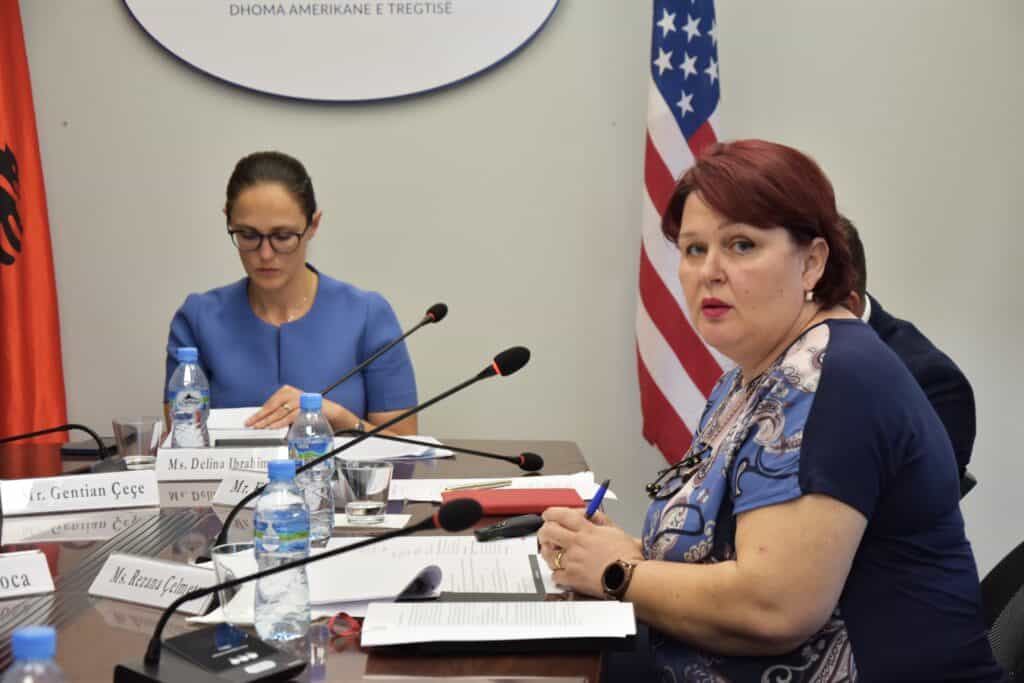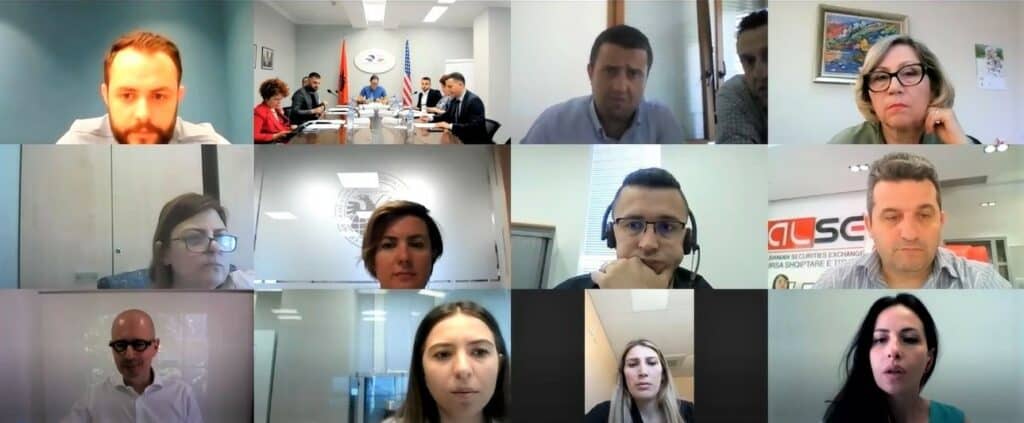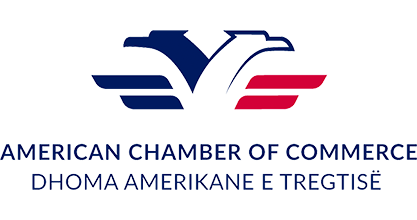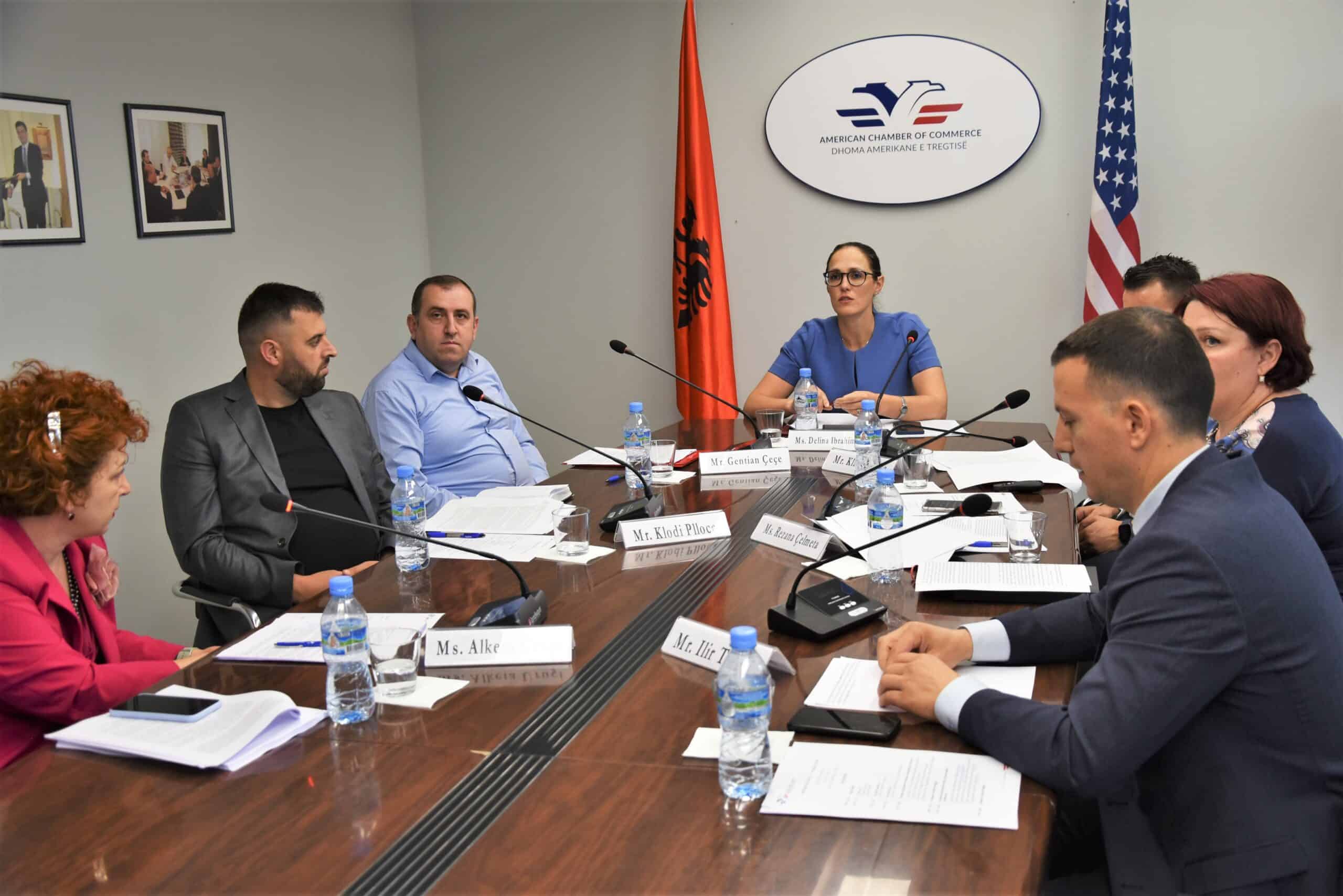How to properly implement the new tax reporting process, fiscal innovations explained
The American Chamber of Commerce in Albania, in cooperation with the General Tax Directorate, organized an informative meeting for AmCham members to explain the fiscalization process and progress taking place in its implementation, which will involve all of Albania’s businesses by the end of 2021.
The head of the tax administration, General Director Delina Ibrahimaj, spoke at the meeting, presenting through the online platform the progress of the process and the expectations of the tax administration.
The meeting was also attended by AmCham President Enio Jaco, who praised the cooperation so far and stressed the importance of dialogue on the process, which is very important for smooth business operations in Albania. Moreover, AmCham Tax and Customs Committee Chairwoman Alketa Uruci shared with the tax officials a list of issues encountered in the first months of implementation by AmCham member businesses.
In her remarks, Ms. Ibrahimaj explained to AmCham members the importance of fiscalization and what businesses should do to comply with its rules.
Fiscalization is the real-time reporting of tax information. Its main purpose is to monitor the turnover of all transactions, whether they use cash or not, everywhere across Albania. As a result, it is an obligation for all taxpayers who issue invoices in the country. Invoices issued for completed transactions are sent in real time to the tax administration’s electronic register.
The tax administration has been optimistic since the start of the fiscalization process, making its expectations clear. The process reforms the way in which taxes are reported and is expected to bring more efficiency in the collection of tax revenues, especially in terms of VAT collection. Reducing informality, improving tax audits and having access to more effective analyses are among the expected positive outcomes of the implementation of fiscalization.
On the other hand, taxpayers will also benefit from the process. Expected benefits for taxpayers include less paperwork, less bureaucracy, better electronic transaction systems, modernization of the reporting format as well as increased transparency of doing business.
During the meeting, AmCham member businesses currently involved in the implementation of the process also shared with other AmCham members information on the software and equipment needed for the fiscalization process. They shared their experience with other members on the innovations that this process brings and the most important elements to consider.
From the discussion at the meeting came a list of necessary elements for fiscalization, including electronic equipment such as a PC, laptop, tablet, or smart telephone, certified software solutions, which issue and fiscalize electronic invoices, and a Self-Care Portal for entities that can issue invoices according to the simplified fiscalization procedure.
As a necessity in the implementation of the fiscalization process, experts demand that businesses also take measures to have maintenance services for the software, a simple printer that prints the QR code, uninterrupted internet connection and the right electronic certificate.
Table
Deadlines for Fiscalization
From Jan. 1, 2021, for CASHLESS transactions between taxpayers and public bodies, only by electronic invoice, B2G: Business to Government.
From July 1, 2021, for CASHLESS transactionsbetween taxpayers. B2B: Business to Business
From Sept. 1, 2021, taxpayers’ cash transactions. B2C: Business to Customer
Transitional period until Aug. 31, 2021
Taxpayers who carry out cashless transactions with public authorities may issue electronic invoices and fiskalize these transactions via the Central Billing Platform until June 30, 2021.
The sales and purchase books will continue to be declared through e-file until Aug. 31, 2021 (so including the month of August 2021).
Entities that issue invoices through certified software may continue to issue them, both for cash and cashless transactions, even if the buyer is not yet part of fiscalization.
All taxpayers should try the Self-Care platform’s test option.
Taxpayers who will issue electronic invoices must apply for Electronic Certificates before June 30, 2021.
Prerequisites for fiscalization
Taxpayers who are to issue invoices should fill the following in the Self-Care Portal before they issue any invoices:
1. Provide information on the site of the business activity, which includes:
Data on activity of business unit;
Internet connection data;
Purpose of using the business unit;
Data on the ownership and area of the unit;
Obligation on whether to issue invoices
Order of invoice numbers
2. Provide information on operators who issue invoices via the Self-Care portal;
3. Provide information about the maintainer of the software solution in the Self-Care Portal;
4. Record electronic billing devices for issuing receipts for payments using cash, in the Self-Care Portal








